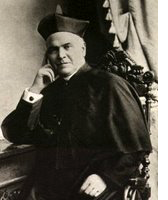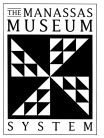In honor of St. Patrick’s Day, and to appease my very Irish wife and boss, here is the story of the most beloved Irish chaplain in American military history:
 According to Catholic doctrine, one of the most important duties that a priest administers is the act of "Last Rites," which is a form of absolution that is given to a dying person. In time of war, this provides a problem as men obviously fall on the battlefield without having a priest nearby. In order to compensate for this absence, Catholic chaplains would perform a universal form of this prior to the battle. Much like their Protestant peers, the Catholics would gather together on the eve of (or hours before) an anticipated engagement, but their ceremony would include a special ritual that would prematurely absolve them in the event that they were killed.
According to Catholic doctrine, one of the most important duties that a priest administers is the act of "Last Rites," which is a form of absolution that is given to a dying person. In time of war, this provides a problem as men obviously fall on the battlefield without having a priest nearby. In order to compensate for this absence, Catholic chaplains would perform a universal form of this prior to the battle. Much like their Protestant peers, the Catholics would gather together on the eve of (or hours before) an anticipated engagement, but their ceremony would include a special ritual that would prematurely absolve them in the event that they were killed.
This 'Mass' was extremely important to brigades that were made up of immigrants such as the Irish and German contingencies. Perhaps the most famous of these was "The Irish Brigade," who deployed with Father William Corby. On The American Civil War website, they describe his invaluable service: "For many Civil War soldiers, both North and South, religion served to provide hope and meaning given what they endured during this bloody, violent conflict. When possible, men of the church would take an active role in lending such to the troops both during times of idleness and of combat."
They add, "The Reverend Father William Corby, chaplain to the Union's Irish Brigade among others, extended general absolution to all soldiers, Catholic and non-Catholic alike. He was also known to administer Last Rites to the dying on the field while under fire. Prior to the conflict in the Wheatfield on the second day of the Battle of Gettysburg, he offered general absolution to the Irish Brigade. Despite the loss of 506 of their men during that day's battle, one soldier stated that, because of Father Corby, "He felt as strong as a lion after that and felt no fear although his comrade was shot down beside him." Not the only example of heroism by people of the clergy, Chaplain William Hoge ignored the Union Blockade to bring Bibles to Southern soldiers."
Father Corby was born in Detroit on October 2, 1833 to Daniel, a native of King's County, Ireland and Elizabeth, a citizen of Canada. Daniel became a prominent real estate dealer and one of the wealthiest landed proprietors in the country. He helped to found many Detroit parishes and aided in the building of many churches. His son William was educated in the common schools until he was sixteen and then joined his father's business for four years. Realizing that William had a calling to the priesthood and a desire to go to college, Daniel sent him and his two younger brothers to the ten year old university of Notre Dame in South Bend, Indiana. The Congregation of the Holy Cross staffed the school then, as now.
After graduation, Corby returned to the school as a faculty member. During the Civil War, he volunteered his services as a chaplain in the Union Army at the request of Father Sorin, who was the Superior-General of the Congregation of the Holy Cross. Corby resigned his professorship at Notre Dame and was assigned as chaplain to the 88th New York Volunteer Infantry in the famed Irish Brigade of Thomas Francis Meagher. It has been written that he boarded the train with a song on his lips - singing, "I'll hang my harp on a willow tree. I'm off to the wars again: A peaceful home has no charm for me. The battlefield no pain."
For the next three years, Father Corby ministered to the troops with great enthusiasm. This made him popular with the men. According to the Catholic Cultural Society, "Chaplains, like officers, won the common soldiers' respect with their bravery under fire. Father Corby's willingness to share the hardships of the men with a light-hearted attitude and his calm heroism in bringing spiritual and physical comfort to men in the thick of the fighting won him the esteem and the friendship of the men he served. Frequently under fire, Corby moved among casualties on the field, giving assistance to the wounded and absolution to the dying. For days after the battles, he inhabited the field hospitals to bring comfort to men in pain."
Known for their glorious (and disastrous) charge at Fredericksburg, the Irish Brigade also made a gallant stand at Gettysburg, where their priest has been forever memorialized in a modest statue that stands near the Pennsylvania Monument. The CCS recalls this as the defining moment for BOTH the brigade and their chaplain: "Before the Brigade engaged the Confederate soldiers at a wheat field just south of Gettysburg, Father William Corby, in a singular event that lives in the history of the Civil War, addressed the troops. Placing his purple stole around his neck, Corby climbed atop a large boulder and offered absolution to the entire unit, a ceremony never before performed in America. Kohl, editor of Corby's memoirs, tells us that Father Corby sternly reminded the soldiers of their duties, warning that the Church would deny Christian burial to any who wavered and did not uphold the flag. The members of the Brigade were admonished to confess their sins in the correct manner at their earliest opportunity."
After repenting in the eyes of their Lord, the Irish Brigade plunged forward into battle and were met with a massive volley of fire from the Confederate forces. At the end of the day, 198 of the men whom Father Corby had blessed had been killed. A tragedy? Yes. But it was dulled by the fact that the departed heroes had been absolved and blessed prior to the engagement. This surely made the family and friends of the dead, a little less sad, believing that their loved ones received the promise of salvation. Father Corby's presence was invaluable and a great comfort to all who attended his services. He is perhaps, the most famous and revered Catholic priest of the entire Civil War.
Following the war, Father Corby returned to Notre Dame in 1865 where he was made vice president. Within a year, Corby was named president. At the end of his term at Notre Dame 1872, Father Corby was sent to Sacred Heart College. He returned to Notre Dame as president in 1877 where he became known as the "Second Founder of Notre Dame" for his successful effort to rebuild the campus following a fire. Later he became Assistant General for the worldwide order.
Father Corby wrote a book of his recollections, entitled "Memoirs of Chaplain Life." He stated, "Oh, you of a younger generation, think of what it cost our forefathers to save our glorious inheritance of union and liberty! If you let it slip from your hands you will deserve to be branded as ungrateful cowards and undutiful sons. But, no! You will not fail to cherish the prize--it is too sacred a trust--too dearly purchased."
He died in 1897, and as he was being buried, surviving veterans of the Grand Army Of The Republic are said to have sang this song: "Answering the call of roll on high. Dropping from the ranks as they make reply. Filling up the army of the by and by."
Excerpts taken from 'The Southern Cross: A Civil War Devotional' by Michael Aubrecht. Copyright 2008, Patriot Press.
Updated: Tuesday, 17 March 2009 1:11 PM EDT
Permalink | Share This Post






 I am currently in the process of preparing an updated version of my talk on Fredericksburg’s historic churches for a March 20th engagement at Manassas Museum. Based on my book “Houses of the Holy,” the original version was a 90-minute presentation that I gave at Spotsylvania Presbyterian Church as part of their
I am currently in the process of preparing an updated version of my talk on Fredericksburg’s historic churches for a March 20th engagement at Manassas Museum. Based on my book “Houses of the Holy,” the original version was a 90-minute presentation that I gave at Spotsylvania Presbyterian Church as part of their